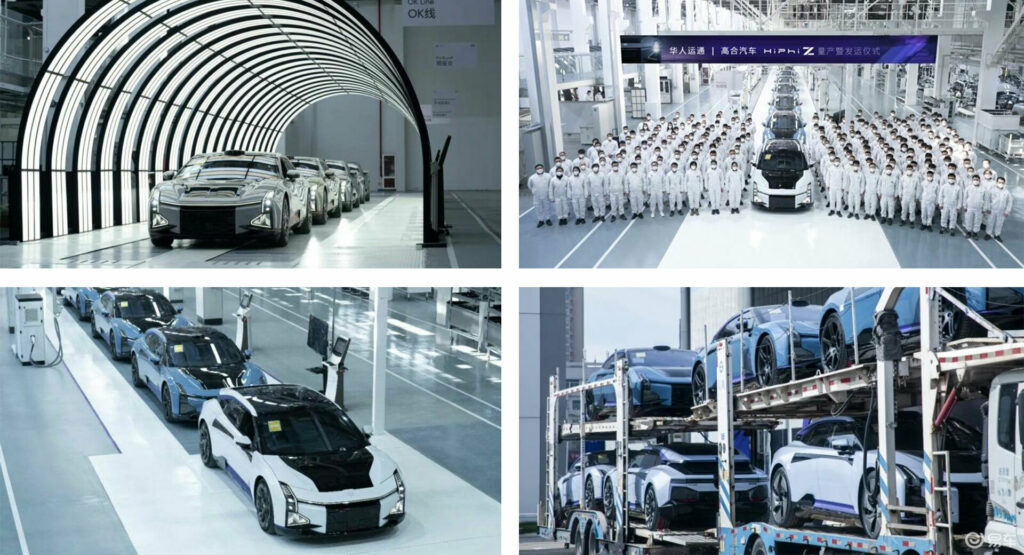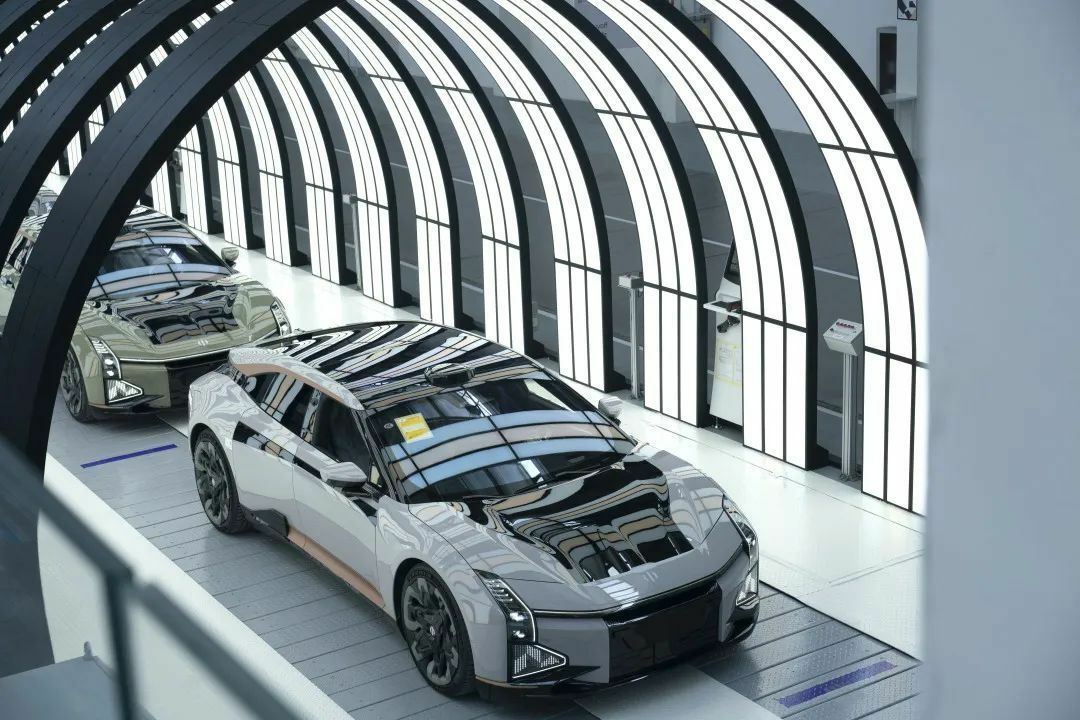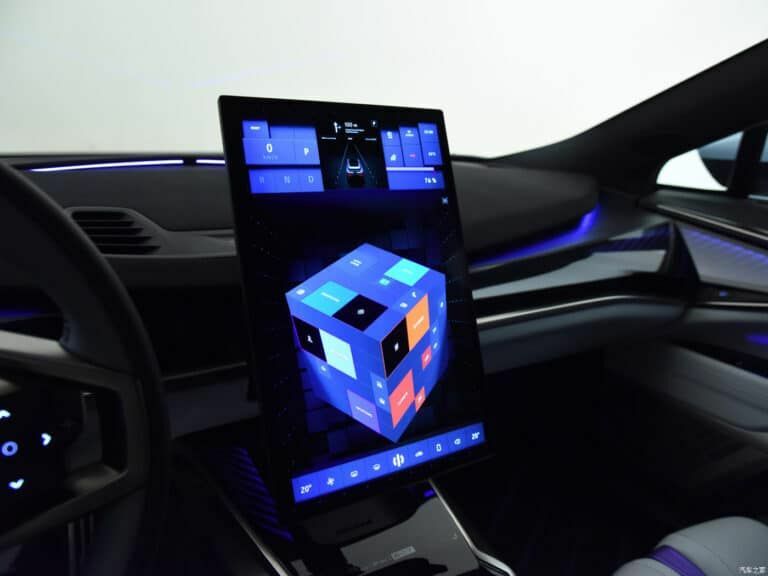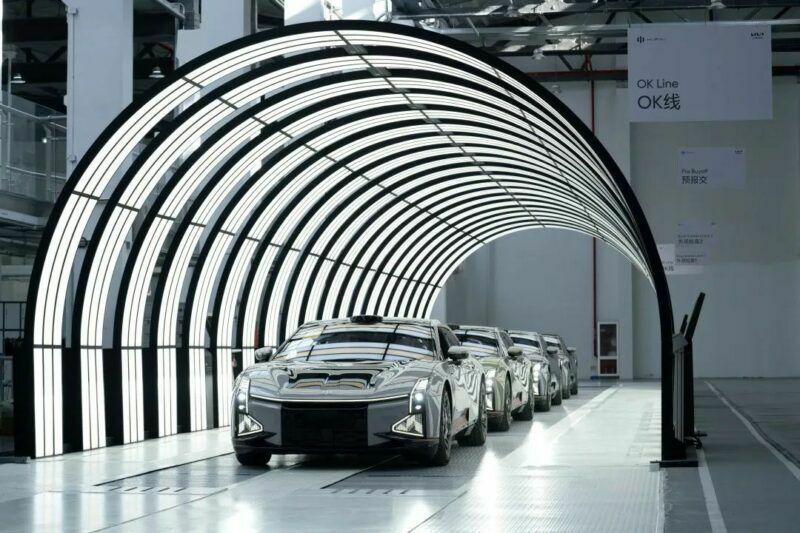A car described by some as a spaceship on wheels, the HiPhi Z, has just hit the production line in China and is one of the industry’s most striking cars.
We haven’t heard much about the new model from Human Horizons since it was first showcased in production guise in early July. Over the last few months, the carmaker has charged forward with the development of the car and on December 20, the first examples rolled out of the factory.
Much like the HiPhi X crossover that the Z follows in the footsteps of, its exterior design is very different than any other car out there. Beyond the intriguing shape of the Z, it also has a particularly interesting front fascia with a set of complex LED headlights and a rectangular grille finished in gloss black.
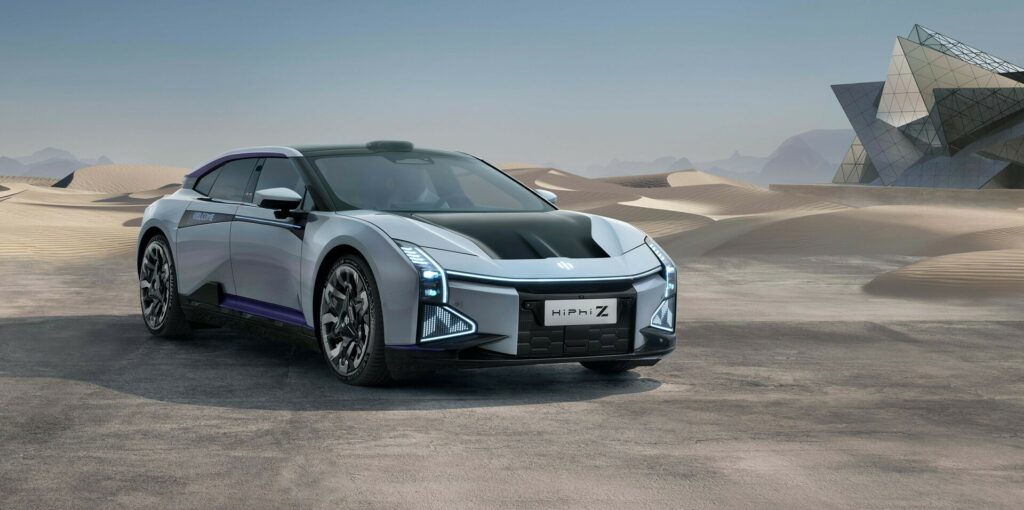
The unique design choices of Human Horizons continue across the rear of the EV where there is a prominent LED light bar, a tiny rear window, and a large diffuser. There is also a large spoiler stretching off from the roof.
Read: Human Horizons HiPhi Z Combines Thousands Of LED Lights With A 0-62 MPH Time Of 3.8 Seconds
Found in the cabin of the HiPhi Z are a number of wild surfaces, including a dashboard housing complex LED ambient lighting and a massive central infotainment screen that can be positioned vertically or horizontally. A complex Head-Up Display is also standard, as is a 23-speaker Meridian audio system.
Underpinning the car is a 120 kWh battery pack. This battery can be mated to either a single electric motor driving the rear wheels and pumping out 300 hp and 302 lb-ft (410 Nm) of torque. Should customers wish, a dual-motor, all-wheel drive model pumping out 600 hp and 604 lb-ft (820 Nm) of torque is available. Human Horizons says this model can hit 100 km/h (62 mph) in 3.8 seconds. Adding to the appeal of the EV is the fact that it can travel up to 705 km (438 miles) on a single charge.
Chinese customers can pick up the keys to the HiPhi Z for between 610,000 yuan and 630,000 yuan ($87,400 – $90,300). The first deliveries will start in January.



